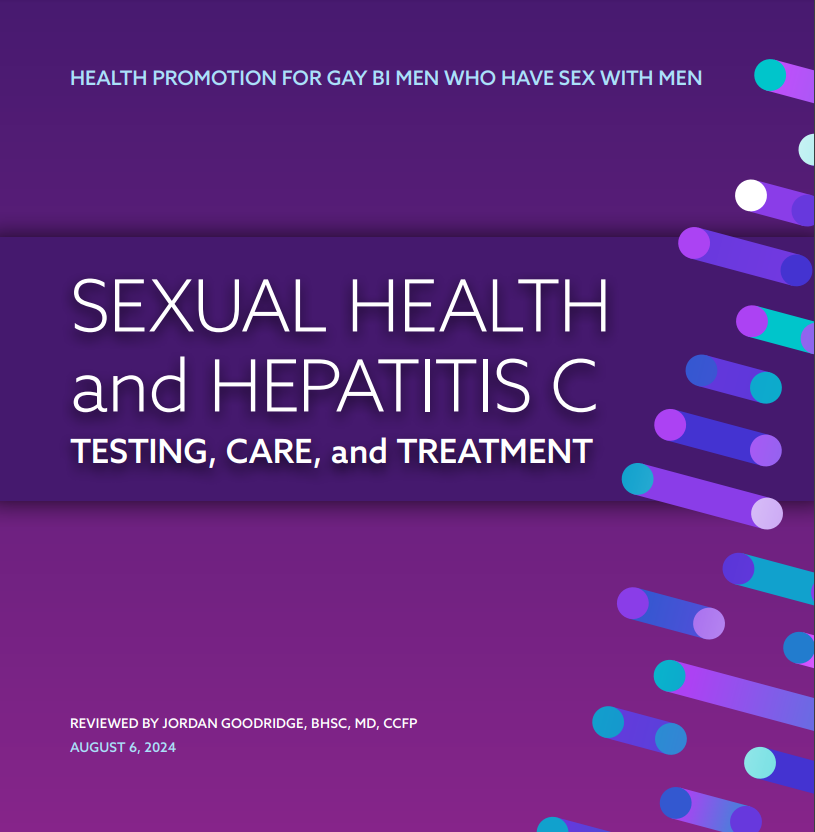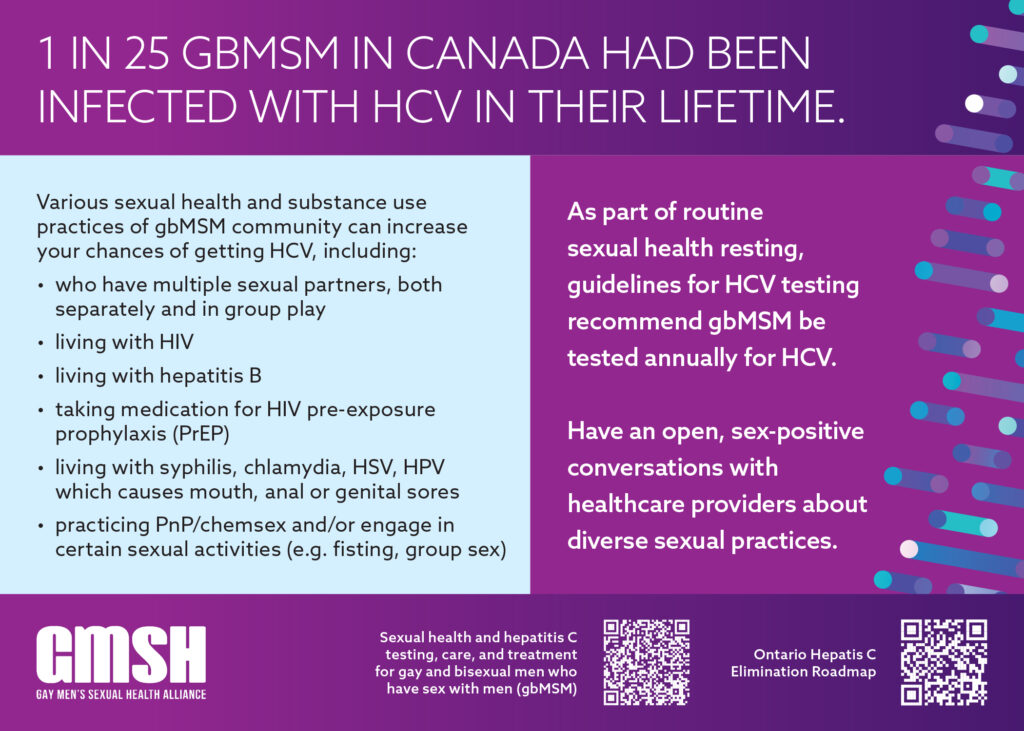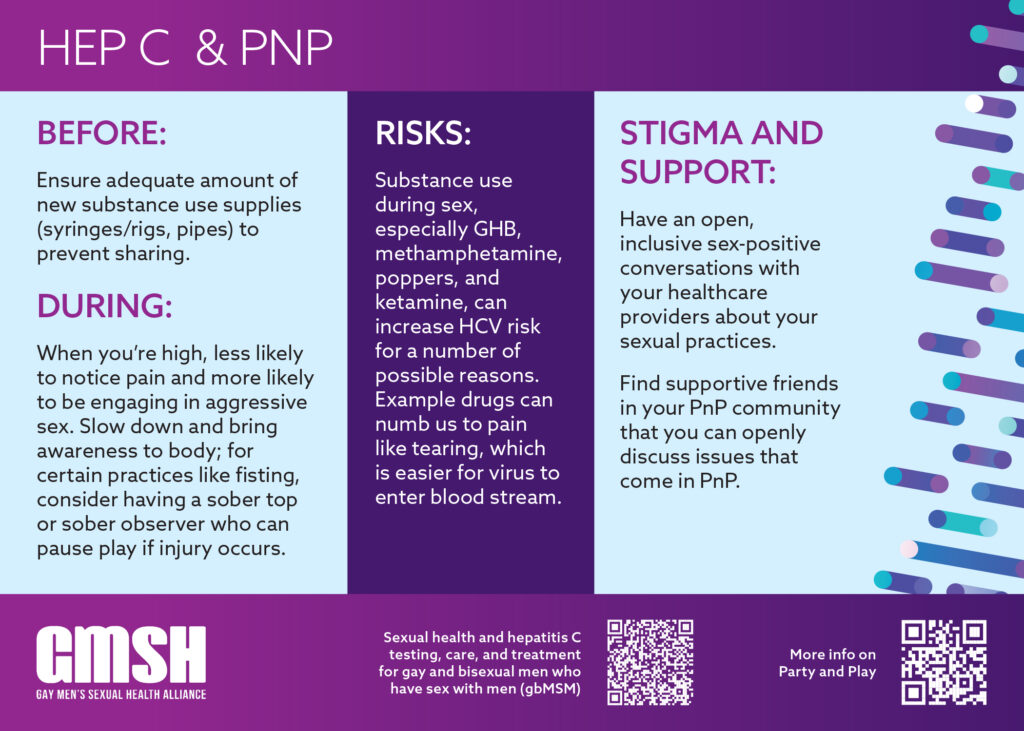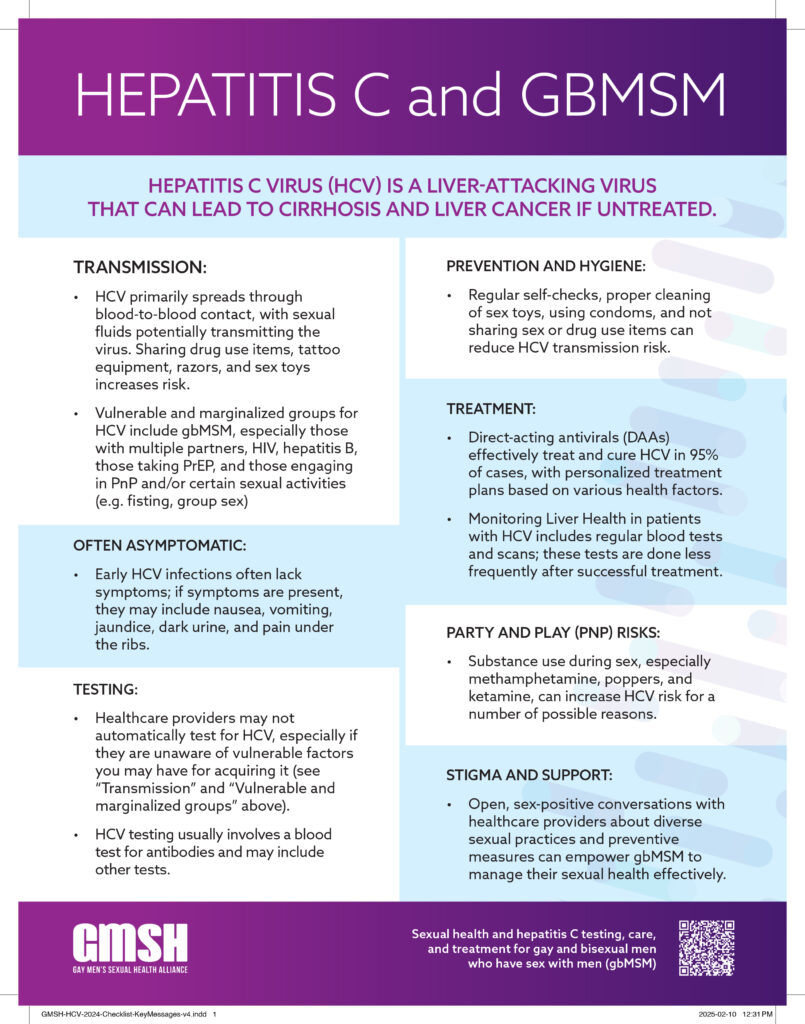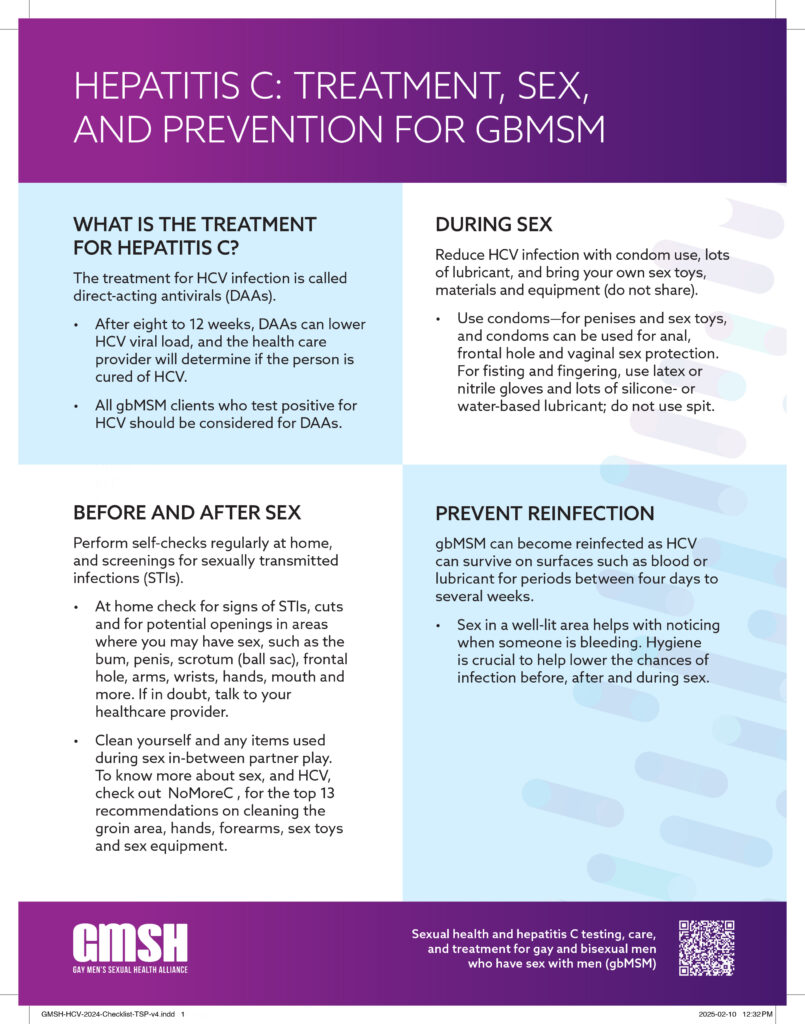In the world we live in today, a holistic view of health and wellbeing must include mental and emotional health alongside physical health. To provide client-centered healthcare that is tailored to the unique needs of queer men, clinicians and healthcare providers should know how queerness intersects with various facets of men's health. This factsheet takes an intersectional lens and looks at different factors such as HIV status, trauma, housing, race, age, ability, class, body image, substance use, etc. and makes suggestions for coping as well as improvements to the healthcare system.
Factsheet: Sexual Health and Hepatitis C: Testing, Care and Treatment

- Resources
- >
- Factsheet: Sexual Health and Hepatitis C: Testing, Care and Treatment
Factsheet: Sexual Health and Hepatitis C: Testing, Care and Treatment
November 11, 2024
Gay Men’s Sexual Health Alliance has published a new 2024 Factsheet on Hepatitis C: Testing, Care and Treatment.
This new factsheet – available to download in pdf form here – is for front-line, outreach, and public health staff, and others providing sexual health care and the communities of gay, bisexual, queer, and other men who have sex with men (gbMSM).
In Canada, gbMSM are one of the priority populations listed in The Ontario Hepatitis C Elimination Roadmap.
What is Hepatitis C?
- Hepatitis C (HCV) is a liver disease caused by the hep C virus (HCV).
- If left untreated over several years, HCV kills and scars most of the liver—a condition called cirrhosis—and may also result in a form of liver cancer called hepatocellular carcinoma (HCC)
- Gay and bisexual men who have sex with men (gbMSM) have relatively high rates of HCV infection and re-infection.
- As of 2023, 1 in 25 gbMSM in Canada had been infected with HCV in their lifetime.
New Printable Hepatitis C Postcards + Posters
These two posters below are useful for health care practitioners and community workers to have as a reminder on facts about hepatitis C and linkage to their gbMSM (gay, bisexual, or men who have sex with men) population. The QR codes link back to the more in-depth factsheet with sources to relevant data and research.
